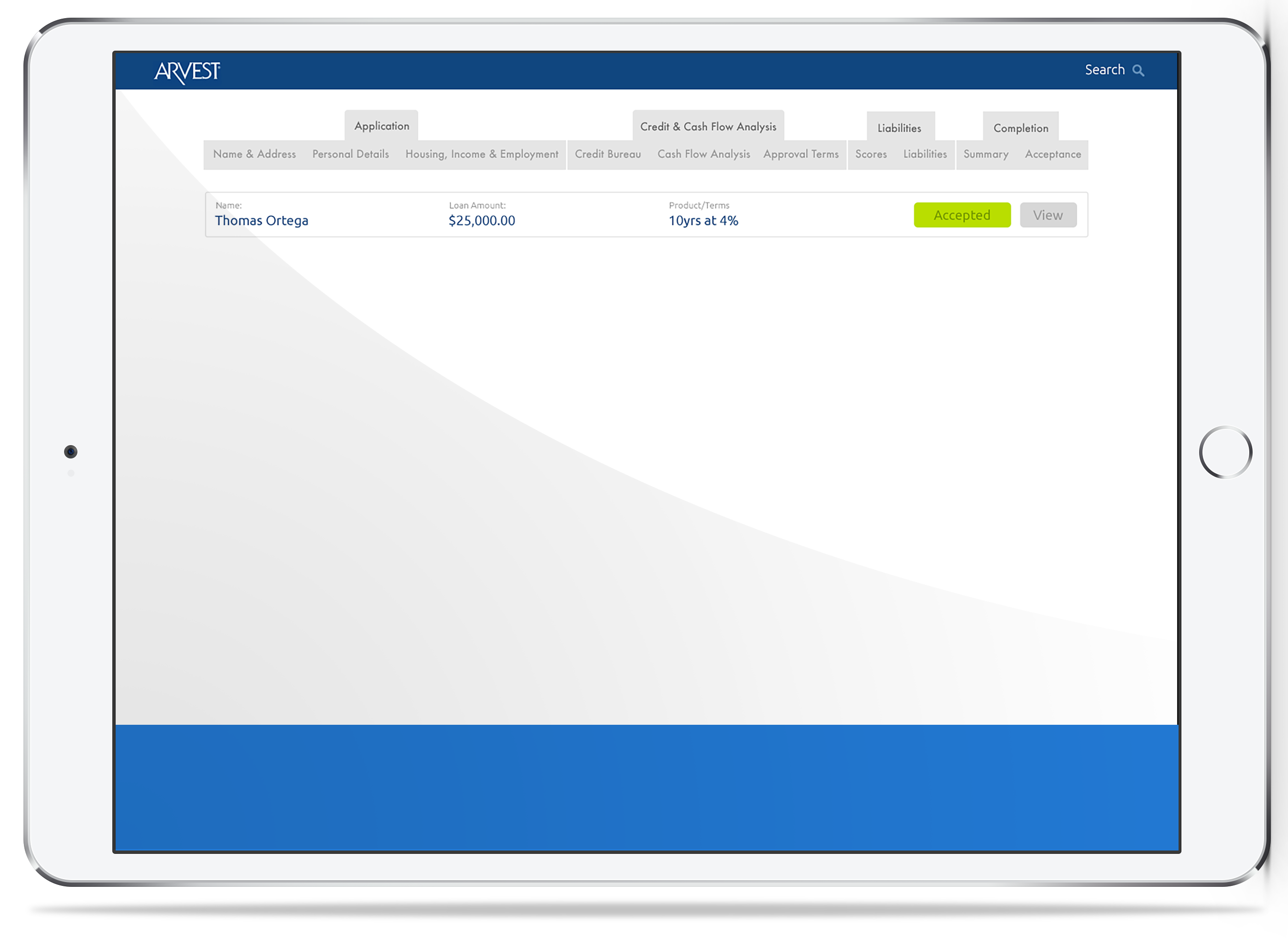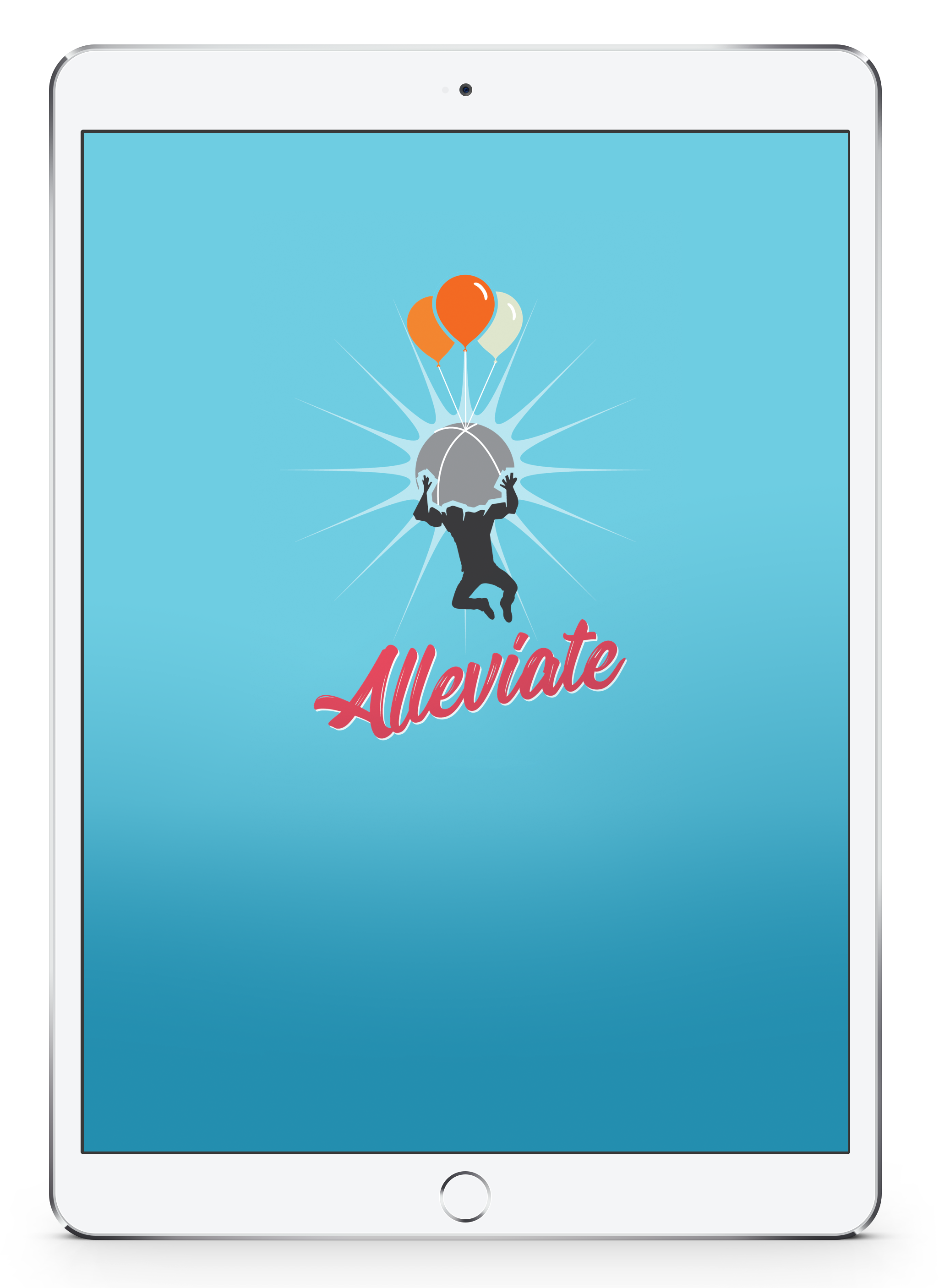Solution: Legal Proof – An app that enables people to capture evidence to use in their court cases
Conception Time: 3 to 4 hours to come up with app and key feature ideas
Construction Time: About 20 hours to code a working proof of concept app
Platform: iOS (iPhone/iPad)
Lawyers are not cheap and many people cannot afford them. Legal Aid Service providers are stretched thin trying to serve the needy and thus can only take a fraction of the cases that seek help. What people need is an app that Legal Aid Service providers can refer those they can’t serve, “This app will help you in court. Go download it.”
The app from an outside perspective looks very simple and primitive. However, that’s deceiving because this is one of the few apps out that doesn’t require any backend services. Our founder, Tom Ortega, wanted to make an application that would have no recurring costs associated with it. He wanted it to be a stand alone app that could continue in perpetuity with the only costs associated with it being Omega Ortega’s dev time. At a Access to Justice hackathon, a supportive judge verified Tom’s suspicion that email was an acceptable way to present evidence. Therefore, the app creates PDFs of evidence that users can then email to themselves, judges, lawyers or courts.
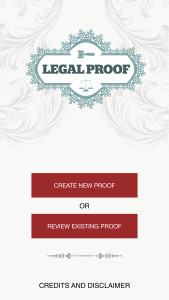
Legal Proof Home Screen
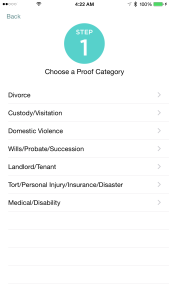
Drill Down help guide users to helpful tips
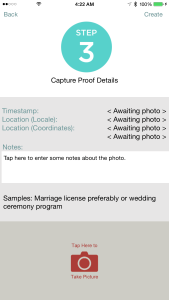
Helpful text gives examples of good proof types
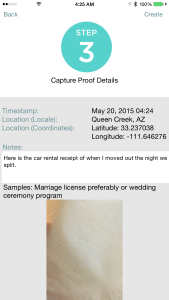
Photo and info
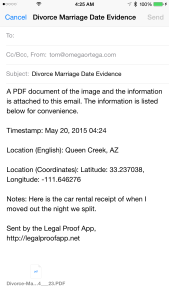
Email Proof
The potential for technology to disrupt how the needy receive their legal assistance is huge. Many people cannot afford a home phone/internet access AND a cell phone, thus they opt for the cell phone only. This means that the technology is getting cheap enough to be present everywhere. Omega Ortega is continuing it’s efforts with this application and look forward to making it even more useful with every release.
